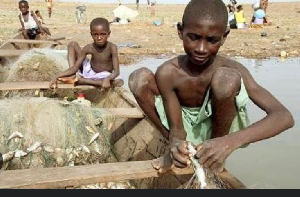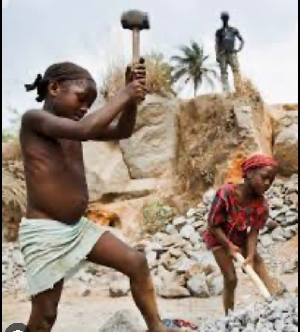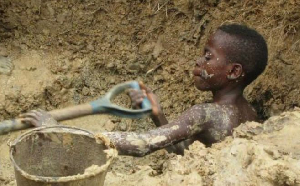
In a world that has made tremendous strides in human rights, millions of children remain trapped in a cycle of exploitation, forced to work in hazardous conditions instead of attending school and enjoying their childhood. Child labour remains one of the most pervasive violations of child rights, robbing children of the opportunity to grow, learn, and thrive.

According to the International Labour Organization (ILO), over 160 million children are engaged in child labour worldwide, with many working in environments that are detrimental to their physical, mental, and emotional well-being. These children often toil in agriculture, mining, construction, domestic work, and even dangerous industries like manufacturing and fireworks, where they face health risks, long hours, and physical abuse. Poverty, lack of access to quality education, and inadequate laws are among the primary factors driving child labour.
The United Nations Convention on the Rights of the Child (UNCRC), adopted in 1989, is a landmark treaty that recognizes the rights of children to protection, education, and a life free from exploitation. It defines children as individuals under 18 and asserts that they should be shielded from economic exploitation and harmful work that may interfere with their health or education. Despite being ratified by nearly every country in the world, including those with high rates of child labour, implementation of these principles remains inconsistent.
Child labour directly violates these fundamental rights. Every day a child spends working, they lose opportunities for personal growth, access to education, and a chance to escape poverty in the future. Although governments and organizations worldwide have committed to reducing child labour, economic hardships, weak enforcement of laws, and the demand for cheap labour continue to create conditions where child exploitation thrives.
One of the most devastating consequences of child labour is its impact on education. Children who work are often forced to drop out of school, either to help support their families financially or because of exhaustion and lack of time. In communities where child labour is prevalent, the cycle of poverty continues as these children grow up without the education and skills necessary to secure better employment. They are more likely to remain trapped in low-paying, exploitative jobs, perpetuating the intergenerational poverty that started them on this path.
The absence of education also prevents children from learning about their rights and seeking better opportunities. Without intervention, millions of children will grow up unable to advocate for themselves or their future children, stalling social and economic development for entire communities and countries.

Steps to Combat Child Labour and Protect Child Rights:
Governments, non-profits, and local communities each play a role in the fight against child labour. Strong legislation and enforcement are essential, as laws against child labour often go unimplemented. Organizations like UNICEF and the ILO are working on the ground to provide resources, support, and educational opportunities to at-risk children, helping them avoid the trap of labour. Additionally, grassroots efforts to increase public awareness and community-led programs to support families can reduce the need for children to work.
Empowering families economically is also critical, as poverty is one of the primary drivers of child labour. Providing financial aid, skills training, and other forms of economic support can enable parents to prioritize their children’s education over work.
Finally, every individual has a role in advocating for child rights and supporting ethical consumption. Consumers can make a difference by choosing to support companies with transparent supply chains and corporate social responsibility policies.
A Call to Action:
The fight to end child labour and secure children’s rights is not easy, but it is essential. Children deserve a life of dignity, play, and learning. They deserve the chance to grow up in safe environments, free from the demands of adult responsibilities and harmful work.
The future belongs to today’s children, and investing in their rights, education, and well-being benefits not only them but society as a whole. Governments, communities, and individuals alike must unite to break the chains of child labour and build a future where every child has the freedom to dream, grow, and succeed.
By Prince Agyei Opoku